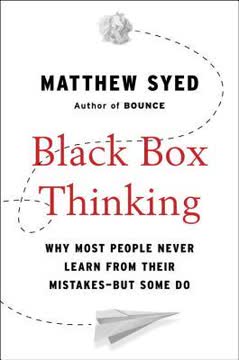Key Takeaways
1. Technology is rapidly replacing human jobs, even in cognitive tasks
"Computers are better than humans at screening documents for relevance in the discovery phase of litigation, an activity for which young lawyers used to bill at an impressive hourly rate."
AI is surpassing humans in many areas once thought to be uniquely human. Watson, IBM's cognitive computing system, can now outperform humans in complex tasks like medical diagnosis and creative cooking. Even in fields like law, computers are taking over tasks such as document review and case prediction. This trend is accelerating, with technology doubling in power roughly every two years while human capabilities remain relatively static.
The job market is transforming. As technology advances, it's not just manual labor at risk. Cognitive tasks in fields like medicine, law, and finance are increasingly being automated. This shift is causing a "polarization" of the job market, with growth in both high-skill and low-skill jobs, while middle-skill jobs are declining. The challenge for workers is to develop skills that complement, rather than compete with, advancing technology.
2. High-value skills are shifting from knowledge to social interaction
"As a result, the meaning of great performance has changed. It used to be that you had to be good at being machinelike. Now, increasingly, you have to be good at being a person. Great performance requires us to be intensely human beings."
Interpersonal skills are gaining value as technology takes over routine cognitive tasks. Employers are increasingly seeking employees with strong social skills, emotional intelligence, and the ability to collaborate effectively. This shift is evident across industries, from technology firms to healthcare providers.
The new high-value skills include:
- Empathy and emotional intelligence
- Collaboration and teamwork
- Leadership and persuasion
- Creativity and problem-solving in social contexts
- Adaptability and resilience
These skills are harder to automate and are becoming crucial for success in the modern workplace. As Geoff Colvin argues, "To put it another way: Being a great performer is becoming less about what we know and more about what we're like."
3. Empathy is becoming the most critical 21st-century skill
"Empathy is the first element of how all that happens, the basis of every significant relationship. And as the stories of the two doctors show, empathy is harder than it may seem, and it frequently doesn't seem all that easy to begin with."
Empathy drives success in various fields, from healthcare to business. Studies show that empathetic doctors have better patient outcomes, and empathetic leaders create more productive and innovative teams. This skill involves not just understanding others' emotions, but also responding appropriately.
Empathy can be developed through various methods:
- Practice active listening
- Engage in face-to-face interactions
- Read literary fiction
- Participate in role-playing exercises
- Seek diverse experiences and perspectives
Organizations are recognizing the importance of empathy and are investing in training programs to develop this skill in their employees. As technology advances, the ability to connect on a human level becomes even more valuable.
4. Stories are more powerful than facts in influencing people
"Just think of what we're being asked to do—to become more essentially human, to be the creatures we once were and were always meant to be."
Narratives drive human behavior more effectively than raw data or logical arguments. Our brains are wired to process and remember information in story format. This is why effective leaders, marketers, and change agents often use storytelling to convey their messages and inspire action.
Key elements of powerful stories:
- Emotional engagement
- Relatable characters
- Clear conflict or challenge
- Resolution or call to action
- Authenticity and personal connection
Research in neuroscience shows that stories can synchronize brain activity between a storyteller and listeners, creating a deep connection. This "neural coupling" explains why stories are so effective in building empathy, trust, and influencing behavior. In a world of information overload, the ability to craft and deliver compelling narratives is becoming an increasingly valuable skill.
5. Face-to-face interaction remains crucial for team effectiveness
"Face-to-face interaction is far richer and more effective than is the fragile, meager digital version in building trust, cooperation, and the patterns of behavior that make groups effective."
Physical proximity boosts collaboration. Despite advances in digital communication, in-person interactions remain superior for building trust, fostering creativity, and solving complex problems. Research shows that the most effective teams have high levels of face-to-face communication and social sensitivity.
Benefits of in-person interaction:
- Non-verbal cues enhance understanding
- Spontaneous exchanges spark creativity
- Trust and rapport build more quickly
- Complex ideas are communicated more effectively
- Social bonds strengthen team cohesion
Companies like Google and Apple have designed their offices to maximize chance encounters and face-to-face collaboration. While digital tools can supplement teamwork, they cannot fully replace the richness and effectiveness of in-person interaction for high-performance teams.
6. Creativity and innovation still require human collaboration
"Computers can create, but people skillfully interacting solve the most important human problems."
Human creativity remains unique. While AI can generate novel ideas and solutions, the most valuable innovations often arise from human collaboration and the ability to reframe problems. Humans excel at combining diverse perspectives, drawing unexpected connections, and adapting to changing contexts in ways that machines cannot yet match.
Key aspects of human-driven innovation:
- Diverse teams bring multiple perspectives
- Emotional intelligence guides problem-solving
- Empathy helps understand user needs
- Intuition and experience inform decision-making
- Adaptability allows for rapid pivots and reframing
Successful innovation often involves not just creating new solutions, but identifying the right problems to solve. This requires a deep understanding of human needs, desires, and behaviors – areas where human insight still outperforms artificial intelligence.
7. Women may have advantages in the emerging social-skills economy
"As value moves to skills of social interaction, you don't need rigorously designed social science experiments to tell you that women will probably perform those skills best."
Female strengths align with future needs. Research suggests that women, on average, score higher on measures of empathy, social sensitivity, and emotional intelligence. These skills are becoming increasingly valuable in the modern economy, potentially giving women an advantage in many fields.
Areas where women may excel:
- Team leadership and collaboration
- Customer-facing roles
- Conflict resolution and negotiation
- Relationship-building in business
- Creative problem-solving in social contexts
However, it's important to note that these are general trends, and individual variation is significant. The goal should be to recognize and develop these valuable skills in all individuals, regardless of gender. Organizations that can harness diverse talents and perspectives are likely to be more successful in the emerging socially-driven economy.
8. Military training offers lessons for developing human interaction skills
"The real key to this process is candor," Kolditz says. "It's soldiers and officers together. Everyone takes their helmets off, which is very symbolic. There is no rank in the room. Comments are blunt. If the boss made a bad decision, often it's a subordinate who points it out."
Military innovations in training have produced remarkable improvements in performance, particularly in areas requiring complex human interaction. The development of realistic simulations and rigorous after-action reviews has transformed how soldiers prepare for challenging situations.
Key principles of effective training:
- Realistic, high-stakes scenarios
- Immediate and candid feedback
- Emphasis on teamwork and communication
- Continuous improvement through iteration
- Focus on adaptability and decision-making
These principles can be applied to many fields beyond the military. Businesses, healthcare providers, and educational institutions are beginning to adopt similar approaches to develop the crucial social and decision-making skills needed in today's complex environments.
9. Education and businesses are adapting to emphasize social abilities
"If you're going to spend time with others, make the most of it."
Curriculum shifts reflect new priorities. Leading business schools and companies are redesigning their programs to focus more on developing social skills, emotional intelligence, and the ability to work effectively in teams. This shift recognizes that technical knowledge alone is no longer sufficient for success in most fields.
Emerging educational trends:
- Experiential learning and simulations
- Team-based projects and assessments
- Emphasis on communication and presentation skills
- Integration of liberal arts with technical subjects
- Focus on ethical decision-making and leadership
Businesses are also investing more in developing these skills in their employees through targeted training programs, mentoring, and creating work environments that foster collaboration and social interaction. As technology continues to advance, the ability to work effectively with others and navigate complex social situations will become even more critical for individual and organizational success.
Last updated:
Review Summary
Humans Are Underrated explores the evolving nature of work in an increasingly automated world. Colvin argues that uniquely human skills like empathy, creativity, and teamwork will become more valuable as technology advances. Many reviewers found the book thought-provoking, praising its insights on leadership and the importance of social skills. Some critics felt the arguments lacked sufficient evidence or were overly speculative. Overall, readers appreciated the book's perspective on adapting to technological changes and the enduring value of human qualities in the workplace.
Similar Books










Download PDF
Download EPUB
.epub digital book format is ideal for reading ebooks on phones, tablets, and e-readers.






